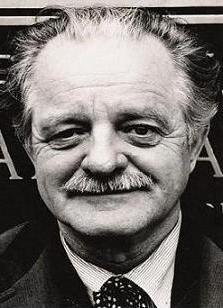A Quote by Ralph Waldo Emerson
The mark of the man of the world is absence of pretension. He does not make a speech; he takes a low business-tone, avoids all brag, is nobody, dresses plainly, promises not at all, performs much, speaks in monosyllables, hugs his fact.
Related Quotes
An Athenian citizen does not neglect his state because he takes care of his own household; even those of us who are engaged in business have a very fair idea of politics. We do not regard a man who takes no interest in public affairs as harmless. We do not say that such a man 'minds his own business'. Rather we say he has no business here at all.
Every man is proud of what he does well; and no man is proud of what he does not do well. With the former, his heart is in his work; and he will do twice as much of it with less fatigue. The latter performs a little imperfectly, looks at it in disgust, turns from it, and imagines himself exceedingly tired. The little he has done, comes to nothing, for want of finishing.
When the Son on the Cross promises paradise in his company to the good thief, when he promises the future feast in Heaven to the Apostles, when he speaks of the kingdom of the Father, he is always pointing toward eternity. However brief and close to the earth his words sound, they echo throughout infinite eternity and permeate the faith of his followers with their eternal content. He knows what he speaks of, what he brings with him and what he promises; and he can convey it to those who know it not. The very words he uses are designed to awaken in them a new sense: the sense of the eternal.
Still, a prince should make himself feared in such a way that if he does not gain love, he at any rate avoids hatred; for fear and the absence of hatred may well go together, and will be always attained by one who abstains from interfering with the property of his citizens and subjects or with their women.
I didn't know what to do. How do you tell an eight-year-old boy his mother's going to die? I tried. In my own stumbling way I tried to prepare Jim for it. Nowadays, he lives in a world we don't understand too well, the actor's world. We don't see too much of him. But he's a good boy, my Jim. A good boy, and I'm very proud of him. Not easy to understand, no sir. He's not easy to understand. But he's all man, and he'll make his mark. Mind you, my boy will make his mark.
That low man seeks a little thing to do, Sees it and does it: This high man, with a great thing to pursue, Dies ere he knows it. That low man goes on adding one to one, His hundred's soon hit: This high man, aiming at a million, Misses an unit. That, has the world here-should he need the next, Let the world mind him! This, throws himself on God, and unperplext Seeking shall find Him.
Why does man freeze to death trying to reach the North Pole? Why does man drive himself to suffer the steam and heat of the Amazon? Why does he stagger his mind with the mathematics of the sky? Once the question mark has arisen in the human brain the answer must be found, if it takes a hundred years. A thousand years.
If every day a man takes orders in silence from an incompetent superior, if every day he solemnly performs ritual acts which he privately finds ridiculous, if he unhesitatingly gives answers to questionnaires which are contrary to his real opinions and is prepared to deny his own self in public, if he sees no difficulty in feigning sympathy or even affection where, in fact, he feels only indifference or aversion, it still does not mean that he has entirely lost the use of one of the basic human senses, namely, the sense of humiliation.
How much reverence has a noble man for his enemies!--and such reverence is a bridge to love.--For he desires his enemy for himself, as his mark of distinction; he can endure no other enemy than one in whom there is nothing to despise and very much to honor! In contrast to this, picture "the enemy" as the man of ressentiment conceives him--and here precisely is his deed, his creation: he has conceived "the evil enemy," "the Evil One," and this in fact is his basic concept, from which he then evolves, as an afterthought and pendant, a "good one"--himself!








































